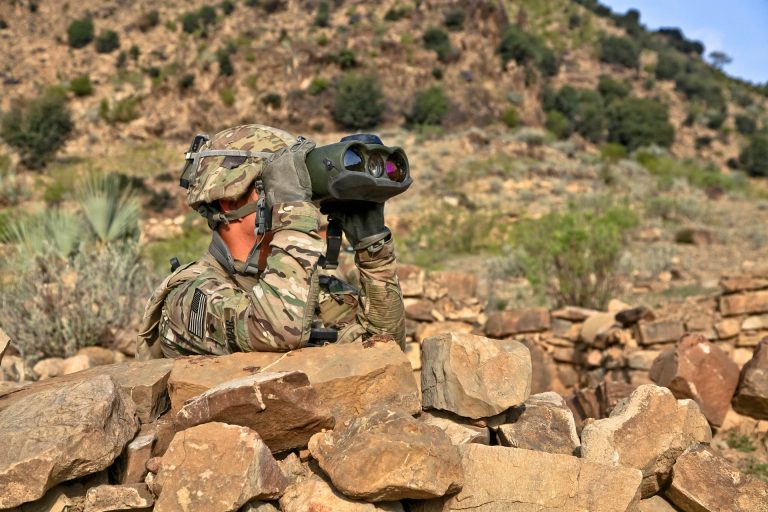Retired General David Petraeus, a former American military commander in Afghanistan, believes withdrawing troops from the nation is a mistake. In an interview with CNN, the general stated that the situation on the ground was getting dire “with each passing week.”
Petraeus says that America will eventually “look back and regret” the decision. “The Afghan National Security Forces had been fighting and dying in very large numbers. And they still are. The problem now is they’re not sure if someone is coming to the rescue, and that injects a very considerable amount of uncertainty into the battlefield,” Petraeus said in the interview.
He also added that by withdrawing Americans, “we are not ending this war” but only “ending U.S. involvement in it.” He predicts a “brutal civil war” will engulf Afghanistan.
In an interview with Times of India, Petraeus said that the lack of American backing would force Afghan troops to do what some have already done – “desert their posts, flee the Taliban or surrender.” Although he is unimpressed with the current Afghan leadership, Petraeus is sure that a Taliban regime would be far worse.
“I fear the decision to withdraw has consigned Afghanistan to a bloody civil war, and is likely to produce millions of refugees, cause damage to infrastructure and foist an ultra-conservative theocratic regime over much of the country that curtails the rights of women, democratic processes, and human rights,” Petraeus said in the interview.
Success
You are now signed up for our newsletter
Success
Check your email to complete sign up
The ex-general foresees Al-Qaeda and its associated Khorasan Group establishing sanctuaries in territories under the control of terrorist factions. However, he does not expect the groups to pose any threat to the United States “in the near term,” because American presence in Afghanistan has reduced their capabilities and strengthened the U.S. intelligence network.
China involvement
U.S. withdrawal from Afghanistan has paved the way for regional players like China, Pakistan, and India to play a larger role in the country. China is reportedly seeking to cooperate with the Taliban.
A Chinese foreign ministry report published on July 14 cites foreign minister Wang Yi as saying “the Taliban, as a major military force in Afghanistan, should recognize its responsibility toward the country and the nation, make a clean break with all terrorist forces and return to Afghanistan’s political mainstream with a sense of responsibility for the country and the people.”
Wang claimed the U.S. war in Afghanistan displaced tens of millions of people, and due to the 20-year war, “peace has not yet arrived.” In an interview with the Chinese state-backed Global Times, Yang Jin, an associate research fellow at the Chinese Academy of Social Sciences, stated that China can act as a mediator or “guarantor of security” in Afghanistan.
In a write-up at the Global Times, Editor-in-Chief Hu Xijin defended the Taliban, claiming that the U.S. does not classify the Afghan Taliban as a terrorist organization. However, the U.S. Office of the Director of National Intelligence does categorize the group as a terrorist entity. Hu went on to write that antagonizing the Taliban would not be beneficial for China.
“The Afghan government and the Taliban have both expressed their friendly attitude toward China. This is certainly good for China. Yet I saw some people have described the Taliban as an enemy of China’s national interests and called for the antagonism of China against the group. Such a claim is emotional, naïve, and deeply out of place in my opinion,” Hu wrote in the article.
Pakistan and Taliban
Meanwhile, Pakistan is reportedly extending its support to Taliban forces. Afghanistan Vice President Amrullah Saleh accused the Pakistani Air Force of providing air support to the Taliban in certain regions.
“Pakistan air force has issued official warning to the Afghan Army and Air Force that any move to dislodge the Taliban from Spin Boldak area will be faced and repelled by the Pakistan Air Force,” Saleh tweeted.
According to an ANI report, more than 10,000 Pakistanis have entered Afghanistan war zones to support the Taliban offensive against the national government. “The Pakistani and the Taliban fighters there have been sent in with specific instructions to target the Indian built assets and remove any signs of Indian goodwill work there,” the ANI report stated.
India has invested over three billion dollars in Afghanistan’s reconstruction efforts over the past two decades, which includes the Zaranj Salma dam and the Afghan Parliament building. Taliban militants have fired mortars on the Salma Dam, which is a major source of irrigation and electricity in the Chishti Sharif district. The Afghan National Water Authority warned of catastrophic consequences if the dam is destroyed.







